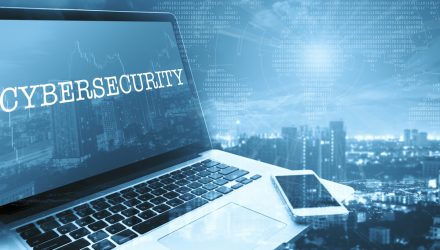Cybersecurity sector-related exchange traded funds have benefited from the shift to working at home as more organizations see the benefit of increasing investments in cybersecurity solutions.
On Friday, the ETFMG Prime Cyber Security ETF (NYSEArca: HACK), the first exchange traded fund dedicated to the fast-growing cybersecurity space, rose 1.6% and the First Trust NASDAQ CEA Cybersecurity ETF (NasdaqGM: CIBR), which also tracks companies engaged in the cybersecurity segment of the tech and industrials sectors, gained 1.6%.
The sector has found strength after Palo Alto Networks (PANW) reported strong quarterly earnings that beat expectations as it benefited from the ongoing shift to remote working.
Palo Alto Chairman and CEO Nikesh Arora said in a statement that the company is “well-positioned to leverage the acceleration” of cybersecurity trends as a result of the shutdown efforts to contain the Covid-19 pandemic and the growing shift toward working at home.
The industry is expected to capitalize on the increased spending for cybersecurity as more companies adjust to working remotely. According to a LearnBonds.com report, 70% of organizations see the value of raising investments in cybersecurity solutions, and around 55% of major organizations will bolster their investments in automation solutions, Security Magazine reports.
“The challenge for many organizations is continuing to accomplish their security must-dos with significantly fewer resources,” Jack Mannino, CEO at nVisium, told Security Magazine. “Relying on a pool of trusted security partners is critical, as niche skills or deep expertise may come from external sources when internal headcount is constrained. Historically, companies have increased their security outsourcing in periods where it’s hard to justify increasing or maintaining internal headcount. It’s important for security providers to understand that their goal is to help an organization maintain security continuity during this period, not to replace their teams’ long term.”
Cybersecurity may act more like a technology industry staple as many companies will require these services even during down market conditions.
“Historically, cybersecurity is a sector where spending still occurs, even when the economy dips. There are risks to smaller and emerging firms, but sales revenue and the amount of capital raised provides resilience,” Rick Holland, CISO, Vice President of Strategy at Digital Shadows, told Security Magazine.
For more information on the tech sector, visit our technology category.








